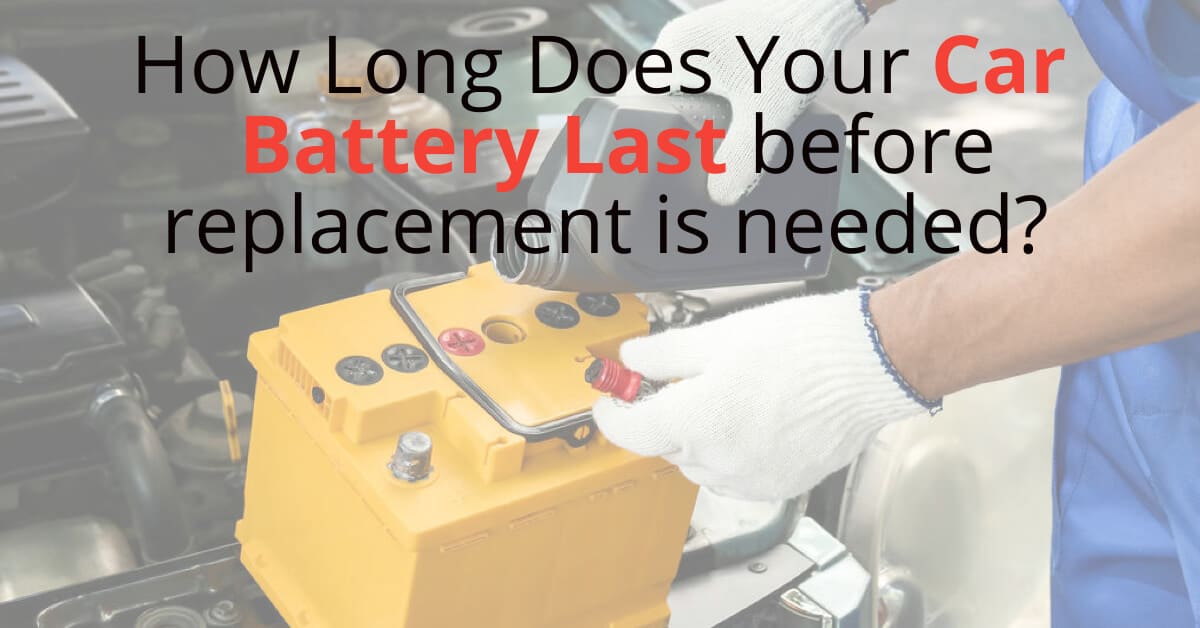A car battery lasts longer when it’s placed in ideal conditions. Extreme temperatures or humid conditions shorten the life span of a car battery. There is no simple answer, however, based on decades of industry experiences, we know that three main factors affect the life of car batteries: Time, Heat and Vibration.
3 Factors that Affect life of your Car Battery
Time
How old is your Battery? The older the battery, the shorter its lifespan. This is because as the battery ages, the electrolyte becomes more acidic and less conductive. As the battery ages, the internal resistance increases which reduces the amount of current flow through the battery.
Heat
What temperature are you using to charge your battery? If you use an external charger, how hot is the charger? Do you have a trickle charger for charging at home? These two things will greatly influence the longevity of your battery.
Vibration
Are you storing your battery in a garage or basement? Garage basements are notorious for being too damp and cold. They can cause corrosion of the terminals and other parts of the battery.
How Long Does Car Battery Last
Car batteries are made up of two different types of cells: The positive cell (the battery’s power source) and the negative cell (which stores energy).
When a car battery is first installed, the positive and negative cells are connected together. This creates a short circuit, which means that electricity flows through both sides of the battery at once.
This short circuit causes the battery to produce a large amount of current, which quickly drains the battery.
To prevent this from happening, manufacturers install a device called a regulator, which limits the flow of electricity into the battery.
However, even though the regulator slows down the flow of electricity, it doesn’t stop it completely.
So, over time, the battery continues to drain.
The reason why the battery keeps draining is because the regulator only works when the battery is fully charged.
Once the battery is drained, the regulator stops working, allowing the battery to continue draining.
As a result, the battery loses its charge faster and eventually dies.
In order to prolong the life of the battery, you need to maintain it properly.
Here are some ways to help extend the life of your car battery:
- Store Your Batteries Properly
If you want to keep your car battery healthy, you should store it in a cool location.
Ideally, you should keep your car battery stored in a garage or shed.
Garages tend to be cooler than basements, so they’ll protect your battery better.
But if you don’t have access to a garage, then you can store your car battery in a cool spot inside your house.
- Keep It Clean
Keeping your car battery clean helps to prevent corrosion. Corrosion occurs when metal reacts with water, causing it to rust.
Corrosion weakens the structure of the battery, making it more likely to break.
Clean your battery regularly
Use a quality car battery cleaner to keep your battery looking new. You can use an all-purpose cleaner like Simple Green, but make sure that you follow the manufacturer’s instructions on how to use it.
- Avoid Extreme Temperatures and Vibrations
Extreme heat and cold will shorten the life of your car’s battery.
For example, leaving your car battery outside during hot summer days will increase the likelihood of it failing.
Similarly, exposing your car battery to freezing weather can damage the insulating material around the battery’s terminals.
- Charge Your Battery Regularly
Charging your car battery every few months will ensure that it lasts longer.
You can do this by plugging your car into a charger for about 30 minutes each month.
- Don’t Overcharge Your Battery
Overcharging your battery will cause it to lose its ability to hold a charge.
You can tell whether your battery needs charging by checking the level of electrolyte in the battery.
If there isn’t enough electrolyte, then your battery needs to be recharged.
- Use The Right Size Battery
This means that you won’t have to recharge as often. But a bigger battery also has a higher chance of breaking.
- Make Sure That Your Car Is In Good Condition
It’s important to check your car’s condition before you start using your car battery. If your engine isn’t running, then you shouldn’t try to jumpstart it until you get your vehicle fixed.
- Check For Leaks
Leaking batteries can cause them to fail quickly. So, look for leaks whenever you’re changing your car’s oil or taking a look under the hood.
How long will a battery keep charge without driving?
Most car batteries that are in working order will last at least 2 weeks without needing you to re-charge them. You should always charge your battery every week or so. If you don’t plan to drive your car for awhile, you should also check your battery at least every 2 weeks. If you’re going to drive your car soon, make sure your battery isn’t dead!
In our research of how long battery lasts, some reports say they can last up to 5 years. Have you ever reached 5 years with your car battery? As far as I remember my car batteries only last less than 24 months and they usually die before the warranty period ends. I end up with a free new battery that has warranty only up to the 1st warranty period of the original battery. So from my experience a single battery purchase can last me up to 48 months counting the replacement of old battery under warranty. I have mixed feelings.. just because I hear that car batteries can last to 5 years abroad.
























